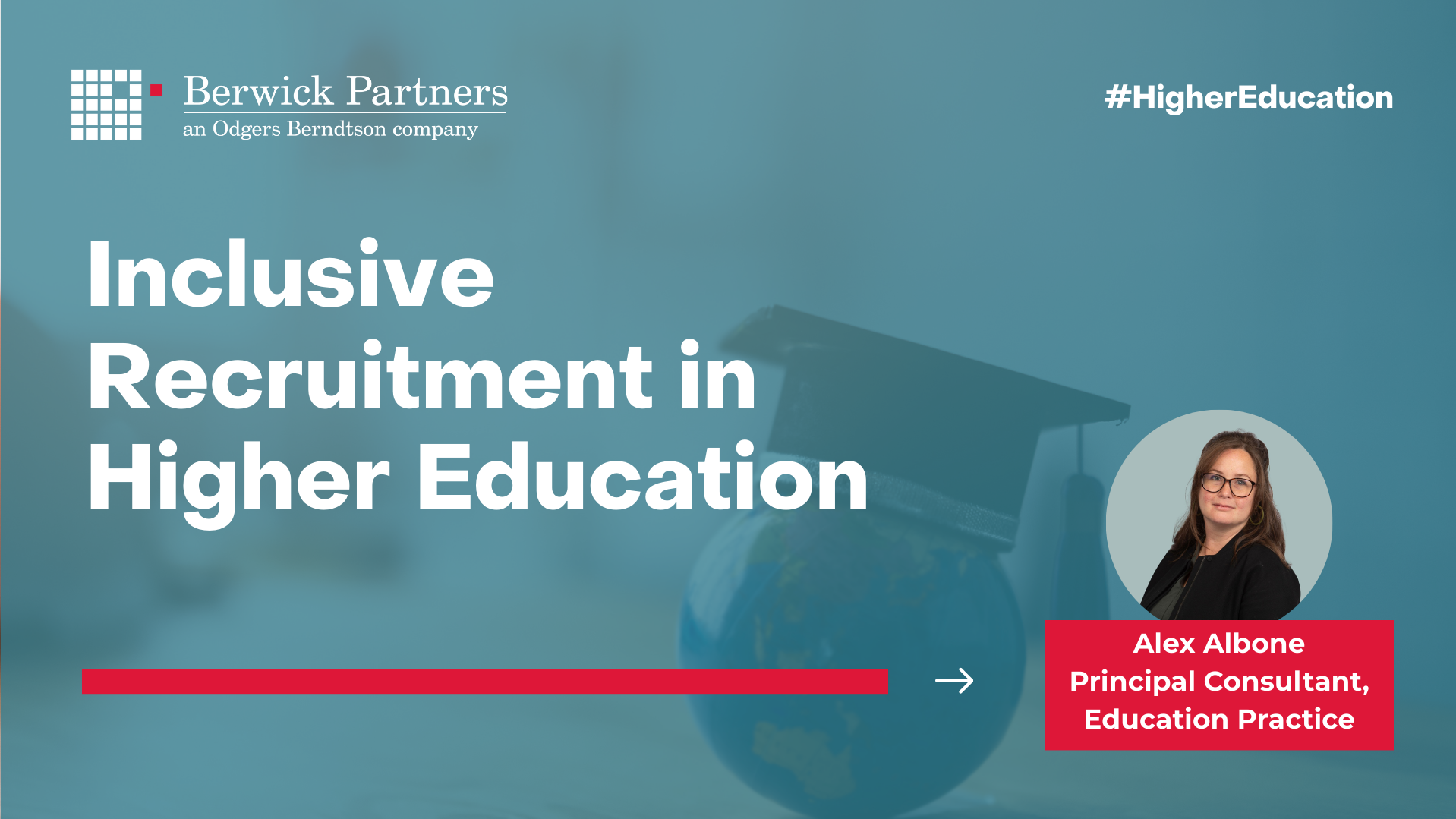Inclusive Recruitment in Higher Education

The UK Higher Education sector is adept at responding to change. It has been navigating sequential periods of transformation for years, most recently through the implementation of TEF, Brexit uncertainty, rising costs, COVID-19, international recruitment fluctuations, funding gaps, digital transformation, a mental health crisis amongst students, and the rise of AI, just to name a few.
As the sector responds to challenge after challenge, they need leaders at all levels who can widen the lens through which solutions are developed, bringing a diversity of experience, thought and approach with them.
Why is it important?
Studies have shown that diverse teams often perform better and are more productive, and organisations which have built brand identity around inclusivity often benefit from reputations that value fairness and equality. Inclusive workplaces tend to have higher employee satisfaction and retention rates. They also report enhanced levels of creativity and innovation, better decision making, and higher performance than homogeneous workplaces.
So where does it all start?
In order to build an inclusive workplace, the first challenge higher education organisations face is reaching and attracting broad and diverse candidate pools in authentic and meaningful ways. What follows below is a non-exhaustive review of recent research and best practice taken from HEIs around the UK sector.
Click here to read the full Research Paper
For further information about this article or our Education Practice, please contact Alex Albone.



